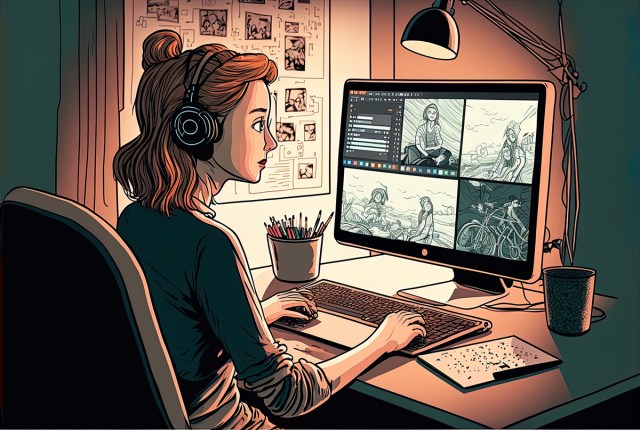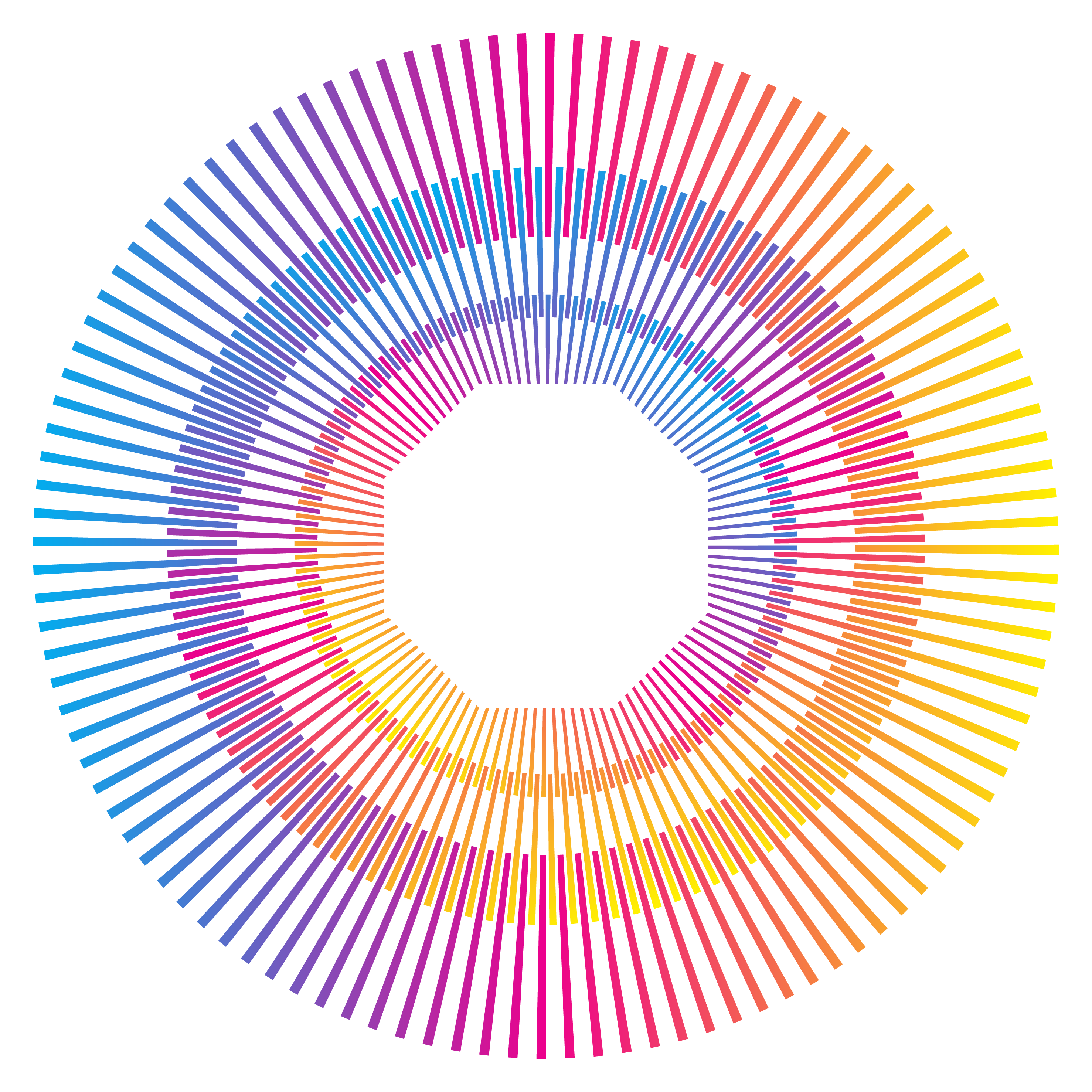BY JIM LOUDERBACK

TL;DR
- YouTube’s ad revenue continues to slide, but Shorts growth may buoy results later this year for everyone.
- Snap is suddenly relevant to creators with some making over $20k a month.
- Twitter will pay creators – but there’s a predatory twist.
- Some early signs of TikTok views flattening out amid a new focus on transparency – but questions remain about trust and oversight.
- The Supreme Court’s revisiting of Section 230 might be the most devastating move of all.
This Week 2-6-2023: Big changes are underway in the creator economy as top platforms deal with revenue drops and competition from new players. YouTube’s ad revenue continues to slide, but Shorts growth may buoy results later this year for everyone. Snap is suddenly relevant to creators with some making over $20k a month. Twitter will pay creators – but there’s a predatory twist. Some early signs of TikTok views flattening out amid a new focus on transparency – but questions remain about trust and oversight. And the Supreme Court’s revisiting of Section 230 might be the most devastating move of all. All that plus a new BHAP feature in this week’s newsletter! It’s the first full week of February and here’s what you need to know.
- YouTube’s Terrible Quarter – What it Really Means: The ad recession has arrived, with YouTube’s quarterly ad revenue declining 8% from last year. At the very least that means less payout to creators, which should continue to incent those creators to diversify their revenue mix off-platform. YouTube also disclosed Shorts views jumped to 50 billion per day, and it started sharing Shorts ad revenue with creators last week as well. Is the revenue problem structural or cyclical? I think it’s mostly cyclical, as advertising is typically first to drop during a business pullback. But as short-form video eats into longer-form viewing it’s imperative that YouTube monetize those 50 billion DAUs at close to VOD rates. Longer term I think more creators will see these platforms as top-of-funnel awareness machines and instead focus on conversion instead of just creation.
- Don’t Sleep on Snap: Looks like some smart creators are already using Snap as a short-form conversion destination. With ads now running on both Discover and Stories, savvy creators are starting to see $20k or more in monthly revenue. Little Yellow missed its quarterly and annual numbers badly, but as they wring the excess out of the system, creators are benefiting.
- Signs of a Possible TikTok View Decline: DoubleT may have hit the wall – or maybe it’s just a victim of its own success. Brendan Gahan teamed up with Trendpop to look at average views for videos that surpassed 100k. In January those videos saw over 20% less views per video than a month ago. It’s not definitive, but an interesting signal. Couple that with threats of shutdown, an errant balloon spiking U.S.-China tension and Shorts growth and perhaps there’s fire inside the smoke. In a related story, Trung Phan unpacks the TikTok Family Guy Pipeline, calls the platform “the apex predator in the attention game” and calls for it to be banned. Compelling analysis. Also sludge.
- Twitter’s Predatory New Pay to Play Scheme: Twitter claims that it now pays creators, but also says that you won’t get paid unless you pay them first. That’s right, unless you buy a paid “Blue Check” plan, any money you’ve earned won’t actually accrue to you. It’s a predatory plan, because it will likely inspire a legion of hopeful creators to pony up month after month – when only a lucky few actually make any money. Shame on Twitter for preying on the little guys.
- Supreme Court Decision Could Change Social Media Forever: You’ll be reading a lot about “Section 230” over the next few months. That’s because the Supreme Court will be revisiting the law that protects social platforms from being responsible for content on their platforms. It might just cause a few algorithmic changes – but it could also drastically impact everything from Reddit upvoting to Wikipedia community updates, Yelp reviews and Discord communities. I’m concerned, as governments have shown a frustratingly consistent inability to understand how technology and the internet really work.
- TikTok’s Plan for Transparency – More Questions Than Answers: TikTok has developed an elaborate plan to separate its U.S.-based data from the rest of the world, along with building a monitoring and compliance infrastructure. The Platformer was invited to hear about it, and detailed what they learned (not much) from that discussion. Lawfare has a more in-depth look at how “Project Texas” will work, but it seems most of the onus of trust is passing on to Oracle. Security researcher Klon Kitchen (as quoted by the Platformer) says that “TikTok is adopting a ‘catch me if you can’ strategy like the one previously employed by Huawei.” My issue is that even if data is stored on Oracle Cloud’s U.S. servers it can still be accessed from anywhere in the world. And why is Oracle nominating the key oversight team? Can we trust Oracle? Lots of questions, not a lot of answers.
QUIBIS:
- Elle Mills in the NYT ($) posts about aging out as a creator and what’s next.
- YouTube exec Andrew Leonard attempts to create a creator/influencer/celebrity taxonomy. I’m not sure that story-telling is the key differentiator but worth a read.
- TikTok leads the shift from shiny celebrity to casual intimacy – as evidenced by the Get Ready With Me trend.
- Great post on what really works on TikTok from Duolingo’s Zaria Parvez – the brain behind the bird. Can’t wait for the rest of the series.
- An interesting look at the strategy and tactics that an interactive multi-player game used to create organic TikTok videos that drove over 100k installs.
- TikTok comes up with its own “Strike” system – I still have PTSD from YouTube’s early efforts.
- Kevin Systrom and Mike Krieger are back with a new app.
- Return of the son of the bride of Paypal – Twitter payment engine gets closer.
- Creative Juice launches a Black Creator Accelerator – five creators will get help and a bit of cash. Nice start, here’s hoping it expands next year!
CRYPTIS:
- NFL and Roblox team up to produce a virtual Saweetie concert for the Super Bowl pregame hype-train.
- Meta lost nearly $14B on the metaverse in 2022.
- Interesting new haptic system for VR. We all know where this tech is going.
GENIES:
- So much for the answer to life, the universe and everything. It’s $20 a month for ChatGPT, not $42.
- New AI tool summarizes long videos. Give it a free try, but beware – it didn’t do a great job on one of mine.
- Welcome to the AI Bubble. Caveat emptor – reminds me of the 2015 pivot to video.
What I’m Watching: Brendan Gahan, Evan Britton, Michael Ma and I debate whether creators really need to own their audience. You probably know what I think.
WEEKLY BHAP: I recently spoke about the creator economy at a corporate retreat, and then led a discussion on the future. As part of that I put together some big predictions to use if the audience was quiet. I didn’t need them. So instead of dropping them into the bit bucket I’m going to surface one each week until I run out of ideas. Here’s this week’s BHAP:
Either this year or next year U.S. workplace regulators will make an example of a top YouTube-led company by suing them for labor law violations, discrimination and/or ignoring harassment on the job. Similar to how the SEC made an example of Kim Kardashian last fall for pumping a crypto security without disclosure, toxic workplace cultures among creator-led companies will be under the microscope. I’ve heard a lot of anecdotal stories about creator-led companies violating workplace law – in large part because they just don’t know and haven’t been trained. This issue will soon come to the fore.
Thanks so much for reading and see you around the internet. Send me a note with your feedback, or post in the comments! Feel free to share this with anyone you think might be interested, and if someone forwarded this to you, you can sign up and subscribe on LinkedIn for free here!
If you’re interested in working together as a sponsor to reach the leaders in the creator economy, check out Inside the Creator’s sponsorship packages and/or email me at jim@louderback.com.
Renee Teely and I interviewed Tim Schmoyer in this week’s creator feed, as we discussed creator burnout and what to do about it.



